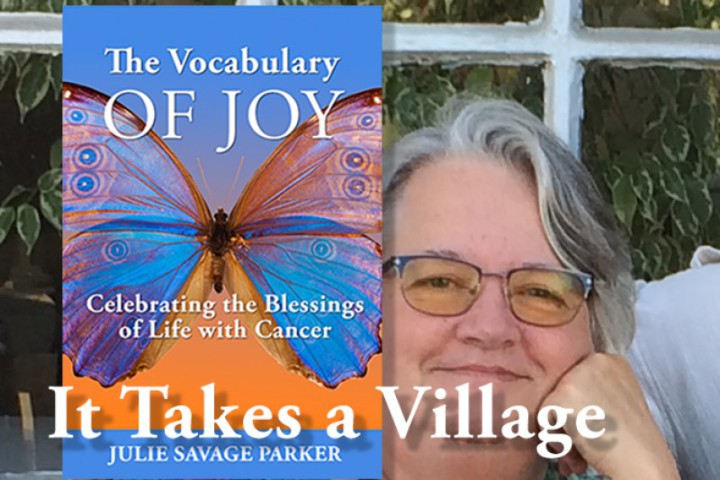Crowdfunding platforms make it possible for individuals and organizations of any size to harness social networks and raise start-up capital for projects that might otherwise fail due to lack of funding. Each week, Xpress highlights notable Western North Carolina crowdsourcing initiatives that may inspire readers to become new faces in the crowd.
Reason to Bake’s business expansion
Elise Sampson and her daughter Carolyn say their cookie company’s mission is twofold: “The first goal is to provide gluten free cookies that are so good you will never miss the gluten,” reads their crowdfunding page. “The second is to allow Carolyn to achieve her dream of becoming a baker and to provide other intellectually disabled adults employment opportunities.” Carolyn, who has Down syndrome, was recently put on a gluten-free diet, which prompted her and her mother to improve the taste of commercially available gluten-free sweets. Operating in that niche, they’ve grown Reason to Bake’s distribution to include 14 retail outlets in Western North Carolina — a scope they hope to widen by switching to shipping-friendly packaging. This would allow for online sales, too, Elise points out. The Sampsons aim to raise $20,000 by Friday, Oct. 14, to purchase new packaging, which a group of Clemson University students has already designed for them, and to cover shipping fees for future orders.
A is for Awkward by Aryelle Jacobsen
Remember how awful those pre-teen years could get? It’s fresh in the mind of AC Reynolds High School student Aryelle Jacobsen, who hopes to do something supportive for youths wading through the maturation process. “I saw that in middle school, kids’ confidence levels were either made or broken,” she says in her crowdfunding video, noting the link between self-esteem and decision making. Jacobsen’s remedy for the lack of helpful resources is a compilation of practical advice from teens. In the book, each letter of the alphabet coincides to a key topic, which is elaborated on in an encouraging tone. The last page includes contact information for resources like suicide and eating disorder hotlines. The young author aims to raise $1,000 to pay for copy editing and publishing (with digital and physical copies), and eventually, she hopes to distribute the book among pediatricians’ offices and middle schools around the country.
The Vocabulary of Joy by Julie Parker
For Julie Parker, 2013 brought big changes: She was diagnosed with ovarian cancer and underwent significant surgery as a result. “When they told me it was time for chemo, I told them ‘no, thank you,’ and began a journey of healing relying totally on the abundance of nature — and on my village, because I found it takes a village to heal from cancer.” The new perspectives Parker gained about healing during that transition are contained in her forthcoming book The Vocabulary of Joy: Celebrating the Blessings of Life with Cancer. She aims to raise $600, ideally by Monday, Oct. 3, to obtain an ISBN for the work and to pay for printing initial copies. The book launch, she hopes, will occur later in October.
Send your crowdsourcing campaign news to kmcreynolds@mountainx.com. A limited number of campaigns will be highlighted each week, at Xpress’ discretion. Campaigns must be locally based and should represent a current project with an achievable goal. Conditions are subject to change. Read about more Western North Carolina projects here.






I’ve noticed that all of the crowdfunding drives showcased (that I’ve checked) have received some measure of funding. What’s the motivation? Do people contribute for feel good value? Obviously the investment opportunity from a monetary perspective doesn’t make sense.
I screen for some level of momentum (donations) before covering, which would explain your initial observation. The goal is to focus on active, realizable initiatives. I also do not include personal campaigns, as this is ideally a roundup of entrepreneurial and/or philanthropic projects.
I imagine feel good value is enough of a motivator for some, but in many cases, the entity running the campaign is administering pre-sales of some product — in which case my use of the term “start-up capital” in the article intro is misleading; it should really be considered revenue that’s received earlier than in a typical business situation. I will edit soon to keep up with the way that crowdfunding is blurring these concepts.
But you’re right that there’s rarely a monetary ROI. Instead, the businesses that administer pre-sales are effectively using crowdfunding websites as e-commerce platforms that shift the cash flow from revenue to be so much earlier (compared to the time of fulfillment) that it allows them to forego “start up capital” altogether. So, backers probably realize that their purchase is doubly powerful in its ability to capitalize someone’s grand idea (based on shifting the cash flow earlier) AND earn them some product or perk that may even be discounted.
In many ways, this is ideal for the casual entrepreneur, because (a) it removes burdens like giving up equity, incurring debt, paying interest, etc., from the process of launching a venture and (b) entrepreneurs can ensure that their initiative will at least break even (assuming no major hiccups in fulfillment) before starting the project… so low risk. Not to mention, having someone willingly sit through a video that explains a product’s underlying human story is a marketer’s dream (and surely ties into the feel good value you described). It’s no wonder some established companies return for each new release.
There are some websites that replicate more traditional lending forms. The below, for example, lets users offer a $100 micro-loan with 0% ROI. They cite community growth as the indirect return.
https://www.communitysourcedcapital.com/squareholder/campaigns
The short answer: I think it’s a combination of feeling like you’re capitalizing someone’s dream AND getting a CD in the mail.
(All of that only applies to the pre-sale style campaigns, but they seem to be very popular.)
Thank you for your thoughtful response. That’s the kind of insight I was looking for, because honestly, I’ve just never understood the draw. From what you’ve said, it sort of reminds me of MLM (direct marketing I think is another term for it), where the ‘investor’ is willing to pay more for products for the sake of receiving the feel-good of having one’s own business with the possibility (however remote) of getting rich. But in this case it would be willing to pay $25 for a $15 T-shirt for the sake of receiving the added bonus of making someone else feel good.
You mean multi-level-marketing — like the Mary Kay cosmetics people? I do not fully understand the inner workings of those systems, but I think that’s more of a pyramid of sales people and the higher price goes to paying commission up the entire chain — not sure though.
With crowdfunding, pricing can be all over the place. They could do $25 for a $15 item and then hope people want to feel good, as you mention, but more often, I’ve noticed pricing that’s consistent with retail. Some campaigns will even put the price below what it will eventually retail for (i.e. buy now to save). The possibilities are endless!
Actually, Negrodamus, some people do things with their lives that do not involve a greedy free market capitalist motivation.
Sure, I understand that. But as expected, you turned an honest question seeking a better understanding of peoples’ motivations into a grotesque polarization, that I guess provides you with self-stroking brownie points for your (apparently) insecure ego, but completely destroys the possibility of any rational discussion.
Well…ask a silly question, get a silly answer.
I personally don’t crowdfund, I just earn money to scrape together without broadcasting it online.
All my friends just naturally assume I’m usually broke.